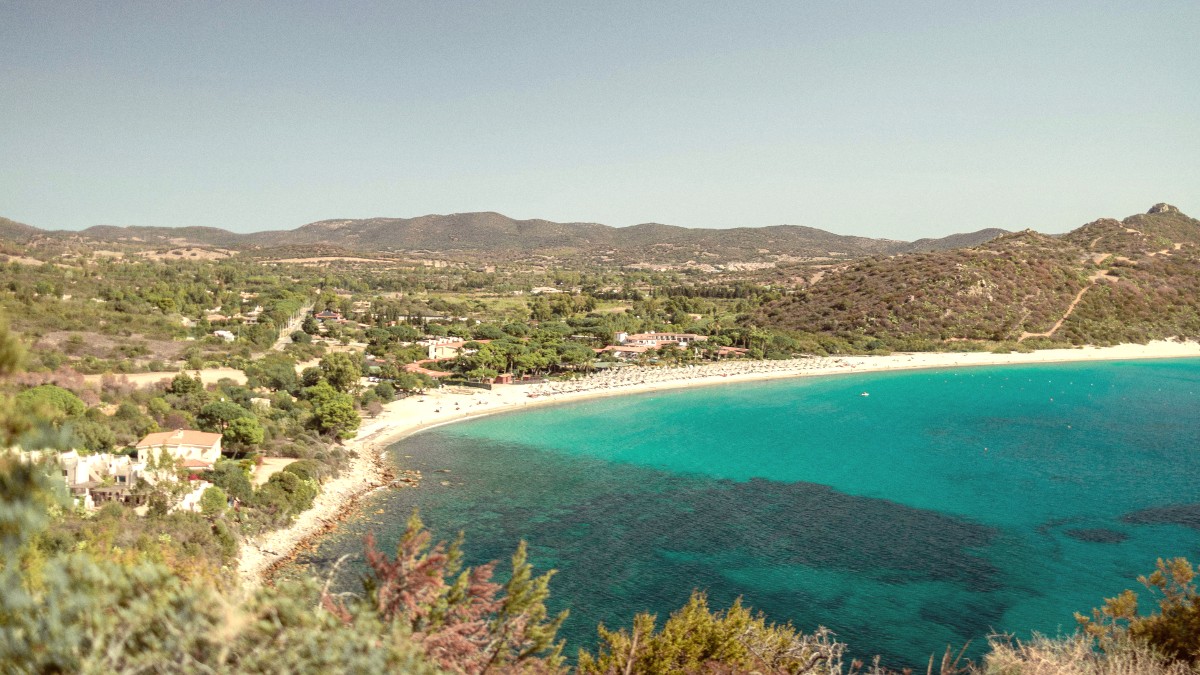
Sardinia, Italy
Spring (April-May): Mild temperatures, typically averaging 15-22°C (59-72°F). Rainfall is moderate, and humidity levels remain low. This season welcomes walking tours and outdoor exploration without excessive heat.
Autumn (September-October): Mild to warm temperatures, averaging 18-25°C (64-77°F). Rainfall begins to increase but remains manageable. The weather is comfortable for outdoor activities, and sea temperatures in September often remain warm enough for swimming.
Hiking & Cycling: April-May or September-October for comfortable temperatures and green landscapes.
Cultural Sightseeing: March-May or October-November for exploring historical sites and museums without intense summer heat or large crowds.
(June-August)
Warmest weather, full operation of tourist services.
Large crowds, highest prices, very hot daytime temperatures.
(April-May, Sep-Oct)
Pleasant temperatures, fewer crowds, better prices.
Some seasonal services may not be fully open.
(November-March)
Fewest crowds, lowest prices, authentic local experience.
Cooler temperatures, higher chance of rain, limited beach services.
Cagliari experiences a predictable Mediterranean climate. However, strong Mistral winds, blowing from the northwest, appear, specifically in spring and autumn. These winds impact sea conditions, making the waters choppier and potentially making open areas feel cooler.
Summers are typically very dry, which increases the risk of wildfires in the surrounding natural and forested areas of Sardinia. Monitor local news for fire alerts during your summer visit.
June to September for warmest sea and active scene.
April-May or September-October for comfortable temperatures.
March-May or October-November avoids peak heat and crowds.
November-March for a quiet, authentic experience.
Spring and Autumn present ideal conditions.
Italy is part of the Schengen Area, which has unified visa policies for short stays.
Citizens of many countries, including the United States, Canada, Australia, New Zealand, the United Kingdom, and most South American countries, do not need a Schengen visa for stays up to 90 days within any 180-day period. This policy applies to tourism or business purposes.
Citizens of other countries, like India, China, and various African nations, apply for a Schengen short-stay visa. Applications occur at the Italian Embassy or Consulate in your country of residence before your travel date.
Costs differ depending on your travel style, from budget-conscious to luxury experiences.
Daily averages, excluding major international air travel to/from Cagliari.
Budget traveler: €50-80 per day. Stays in hostel dorms/basic guesthouses (€25-40). Meals from supermarkets, street food, or budget pizzerias (€15-25). Public bus use with daily pass (€5-10). Focus on free attractions (€5-10).
Mid-range traveler: €90-180 per day. Stays in comfortable 3-star hotels or well-located Airbnb apartments (€60-100). Meals from mid-range restaurants and local eateries (€30-50). Public transport with occasional taxi rides (€10-20). Visits to paid attractions, boat tours, or cooking classes (€20-30).
Price ranges per night for a double room.
Hostel dorm bed: €25-40
4-star hotel: €150-300+
Typical costs for dining and beverages.
Personal pizza: €8-15
Full meal (mid-range): €25-40
Costs for getting around Cagliari.
Single bus ticket: €1.30
Taxi airport-city center: €15-25
| Attraction | Price Range | Notes |
|---|---|---|
| Roman Amphitheatre | €5-7 | Uncovered, open-air site |
| National Archaeological Museum | €9-13 | Home to Nuragic bronzes and Giants of Monte Prama |
| Torre di San Pancrazio / dell'Elefante | €3-5 (each) | Offers panoramic city views |
Cagliari is a generally safe destination, awareness and preparation prove useful.
No specific vaccinations for entry. Ensure routine vaccinations are current.
Sunburn/Heatstroke (use High-SPF sunscreen, Hat), Dehydration (drink water), Mosquitoes (Repellent), Jellyfish (local warnings).
Tap water generally potable. High food hygiene standards.
Emergency Number: 112 (Police, Ambulance, Fire)
Italy has a high standard of medical care. Major public hospitals in Cagliari include Policlinico Universitario Monserrato and Ospedale Civile Santissima Trinità.
Pharmacies (Farmacia), identified by a green cross, are widespread. Pharmacists offer advice for minor ailments and dispense non-prescription medications.
Comprehensive travel insurance covering medical emergencies and evacuation is highly recommended. Consider World Nomads or SafetyWing.
Pickpocketing may occur in crowded tourist areas (Via Roma, Castello, public transport, Mercato di San Benedetto). Stay vigilant. A Pacsafe anti-theft backpack offers protection.
City center generally safe, even at night. Exercise normal precautions as in any urban environment.
Low seismic risk. Occasional urban flooding from heavy rain. Wildfires in summer (monitor local news).
Report lost/stolen passports to local police immediately, then contact your country's embassy or consulate.
When using public Wi-Fi networks, consider a VPN for enhanced security of your online activities. Options include: